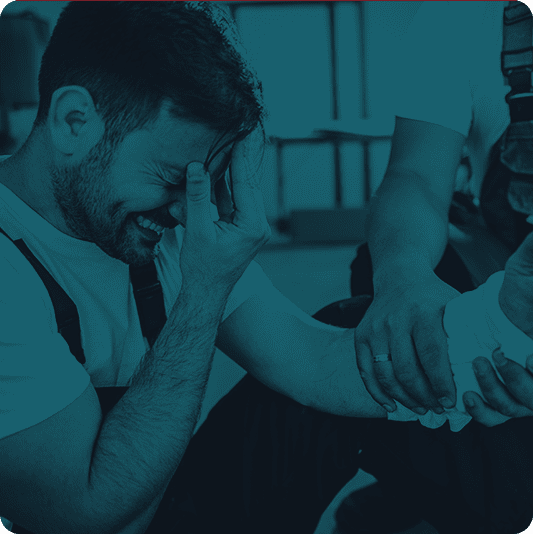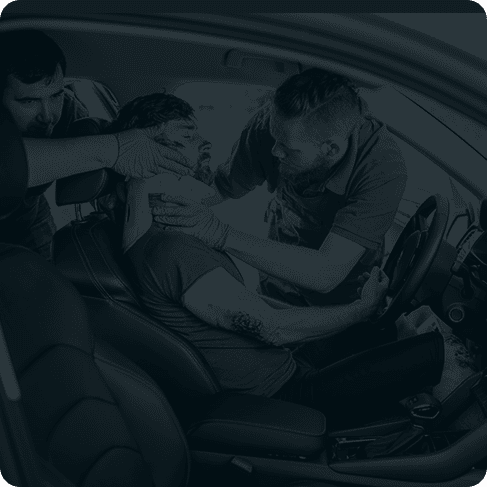In the event you are seriously injured, you can only file and win your personal injury claim if your accident was someone else’s fault. Personal injury law governs the rules to compensate for the pain, distress and injuries sustained from a traumatic car accident or injury resulting from someone’s negligence.
The settlement award is meant to compensate the injured party financially, and to make the injured person as “whole” as possible again. This means adding up actual damages such as medical bills and property damage, which are fairly easy to calculate, and estimating damages in the form of physical pain, emotional distress or loss of enjoyment, which are more abstract and can be difficult to measure.
In this post, we’ll share with you proven strategies and tips on how to win a personal injury claim and also guide you on the insurance claim process.
Different Types of Accidents or Personal Injury
You may not realize the dangerous risks you face every day just driving to work or walking through your neighborhood. Some of the many ways you might get injured are:
Slip and fall: Many slip and fall injuries result from snow or ice, slick floors from water or grease, poor lighting, debris, holes in parking lots or cracks in sidewalks. Some property owners just won’t spend money on costly repairs.
Dog bite: There are over four million people attacked by dogs every year; over 30,000 people were attacked so viciously they required reconstructive surgery.
Car accident: There are 1.1 million accidents involving drunk drivers, and over 350,000 involving cell phone use every year. Vehicle accidents involving rear-end collisions often result in whiplash, while head-on collisions are tragically almost always fatal.
Work injury: There are over 4.7 million work injuries per year; most involve sprains, cuts or pain.
Wrongful death: Most injuries resulting in death occur from a car or truck accident; there were over 400,000 wrongful deaths last year alone.
Medical malpractice: Most occur because of medical treatment misdiagnosis, operating on the wrong body part or even the wrong patient, or dispensing medication incorrectly.
Faulty Product: The biggest problems are electrical appliances, food contamination, medical devices such as pacemakers, and serious side effects from prescription drugs. Some products have a mistake in their design, and some products were improperly tested.
Nursing Home Negligence: Understaffed caretakers give out the wrong medication or ignore bed bound patients, leading to agonizing bedsores, and falls.
Legal malpractice: The biggest cause of legal malpractice is from personal injury attorneys missing important deadlines, such as the time frame set by the statute of limitations to file a claim.
Determining Who Is At Fault
Florida is one of the 10 states that have mandatory personal injury protection (PIP) insurance coverage. Every driver is required by law to have this insurance is to be used in the event of an auto accident to cover any medical expenses due to the accident. However, in the event that coverage exceeds your PIP limits and there is someone to hold liable for the accident, their liability insurance may cover the excess costs.
Since the party who bears the most blame for the injury pays most of the damages, it is important to figure out which party was the most careless or negligent. If you were in a car accident and you were driving too fast, your injury damages might be reduced, depending on the degree of fault. If the other driver ran a red light or was high on drugs, he or she may be blamed entirely.
Everyone who has lost a loved one because of a drunk driver wants justice; a personal injury attorney can help you know whether you can get punitive damages, which are awarded as a punishment.
One of the biggest cases in history with a punitive damage award was In 2002 against a cigarette manufacturer. A woman claimed smoking cigarettes caused her lung cancer; the company was well aware of the risks of smoking, but kept silent. The jury ordered the tobacco company to pay a whopping $28 billion. Drug manufacturers are notorious for hiding the risks and side effects of prescription drugs, and consequently pay massive amounts in punitive damages.
Product liability law involves a faulty product, such as in 2014 when a major car manufacturer built cars with faulty ignition switches that could shut off the engine while it was running, and cut off power steering and brakes. At least 13 people died, and the car company set up a $400 million fund to compensate injury victims.
Legal Duty
The individual who caused the accident, or the company that owned the property where the accident occurred, may be blamed because of a legal duty to take precautions so that no one gets hurt. Drivers shouldn’t speed, and a restaurant has to take care that any spills are mopped up quickly to avoid falls. Some examples of legal duty are:
Do You Think You Might Have A Case?
If you have been injured and think you might have a case, consider some of the different ways damages may be compensated:
Starting A Personal Injury Claim For Fair Compensation Of Damages
Right after your accident, an insurance adjuster might come knocking at your door waving a settlement offer. The main goal of an insurance company is to offer you as little as possible to settle your personal injury case; the insurance claims adjuster will never voluntarily give you the full value of your claim.
As soon as possible order the incident or accident report and try to write down everything that you remember about the accident, including the names of any witnesses. Be sure and take pictures of your injuries and your smashed-up car, and of the accident site.
Personal Injury Claims Process
If you have been involved in a car accident or some other kind of injury, you may be overwhelmed with your pain and intimidated by the insurance company. Here are some concrete steps to simplify the complex legal process:
- Counsel: Any personal injury claim process should begin with seeking reputable, experienced personal injury lawyers. The laws concerning work injuries are different from other kinds of personal injury, and these laws can vary from state to state.
- Gather records: Your personal injury lawyer will help gather police and incident reports, receipts, pictures, etc. We’ll get all the required medical records from the medical professional.
- Demand: A demand letter is made, informing the insurance company of actual costs, along with estimates for pain and suffering, and future expenses, using the formula below.
- Lawsuit: If the insurance company refuses to settle the personal injury case, your attorney will file a personal injury lawsuit, followed by the discovery process, leading up to a trial. In the discovery process, information is exchanged and the opposing attorney will do the legal representation.
- Trial: Most personal injury cases don’t make it to court but are settled outside the courtroom, as trials are expensive for insurance companies. If the personal injury lawsuit go to trial, the judge or jury will determine if the defendant is liable, and then possibly award damages. Having a strong case prepared for trial can pressure the responsible party to offer you a fair settlement.
Negotiating A Full & Fair Settlement
The best way to receive the maximum amount of insurance settlement from the insurance company is with the help of a personal injury attorney. Your attorney will initiate the litigation, contact the adjuster and stress the severity of your suffering, using graphic photos of your injury or damaged car, placing as much blame as possible on the other party.
The adjuster will automatically counter with a lower offer, so the first offer is almost never accepted. Your experienced personal injury lawyer will come down slightly, and the dickering will go back and forth several times until a maximum settlement amount is reached, usually somewhere in between.
Estate Planning
In the event of a large and adequate compensation, consider financial advice to safely manage your settlement, including estate planning. Planning for the future is a wise idea for clients, not just the rich, to have plans in place should something happen to you, so that your home, business and other belongings are left to the right person.
You also want to provide the best care for your young children, and you can purchase insurance for yourself if you, unfortunately, become disabled. The two main types are income replacement insurance and long-term care such as rehabilitation facilities or nursing homes.
Finalizing Your Personal Injury Claim
After a personal injury settlement has been reached, the insurance company will send settlement money in exchange for a release from you. Generally, the insurance company will send two separate checks; one for the attorneys for their legal fees and expenses, and one for the injured party. If the two checks are combined, the attorney will place the check-in trust and wait for it to clear before he can issue a check to you.
If you have been injured, be sure to consult an attorney to determine if you can file a claim, helping you to receive the best possible settlement from the insurance company.
Our Expertise
We have your back. Whatever you might be suffering from, accidents, injuries or medical malpractice, we have you covered throughout Florida
Let’s get in touch!
The initial consultation is absolutely FREE
Denmon Pearlman
Law
Tampa Office
2504 W Crest Ave
Tampa, FL 33614
(813) 554-3232
Denmon Pearlman
Law
St. Petersburg Office
520 2nd Ave South
St. Petersburg, FL 33701
(727) 493-5610
Denmon Pearlman
Law
New Port Richey Office
5703 Main Street
New Port Richey, FL 34652
(727) 753-0049
Denmon Pearlman
Law
Brooksville Office
1790 E Jefferson St.
Brooksville, FL 34601
(352) 309-7354
Denmon Pearlman
Law
Seminole Office
5290 Seminole Blvd. Suite D
St. Petersburg, FL 33708




